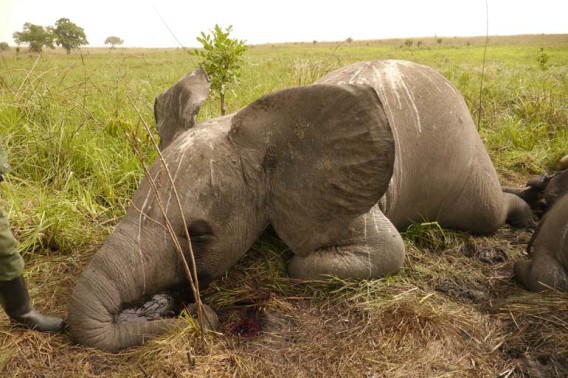White House Appoints Stanford Law School Lecturer to Lead U.S. Wildlife Trafficking Alliance
This story was written by Clifton Parker and published in the Stanford Report on Aug. 10.

When the White House announced last Wednesday it had formed a new alliance to stop wildlife trafficking in the wake of the killing of Cecil the lion in Zimbabwe, there was a Stanford connection at the center of it all.
David J. Hayes, a distinguished visiting lecturer at Stanford Law School, will head the U.S. Wildlife Trafficking Alliance, which is asking companies, foundations and nonprofit organizations to join with the U.S. government in efforts to reduce demand for illegal elephant ivory, rhino horn and other wildlife products. He led a practicum at the law school on the international wildlife trafficking crisis in 2014.
Hayes said, “What’s new and different is that the U.S. Wildlife Trafficking Alliance will follow a public process to evaluate how best to combat the wildlife trafficking crisis in the U.S.”
He said the alliance builds on President Obama’s National Strategy to Combat Wildlife Trafficking, which Hayes and his students helped develop and which was rolled out this past February.
Firms such as eBay, Facebook and Google have already adopted policies and procedures that align with the goals of the alliance, according to the White House release.
Hayes said efforts will be made to raise public awareness about the devastating impact of poaching and illegal trade on elephants, rhinos, tigers and other irreplaceable species; highlight the links between poachers and organized crime; and reduce consumer and commercial demand for wildlife products from those types of animals.
Hayes emphasized the need to mobilize companies to ensure their merchandise does not contain parts or products from illegal wildlife and that traffickers are not using their goods and services. He said the organization will pull together the “major elements of civil society to collaborate” closely with the government on solving the wildlife trafficking crisis.
Finally, White House officials described in a blog post a number of administration initiatives aimed at grappling with the wildlife trafficking crisis, including a plan this fall to host a meeting with leaders of the alliance. Hayes recently talked with the Stanford Report about his what measures the U.S. government can talk.
